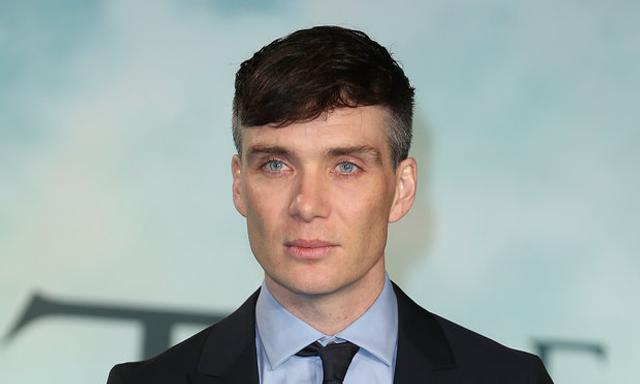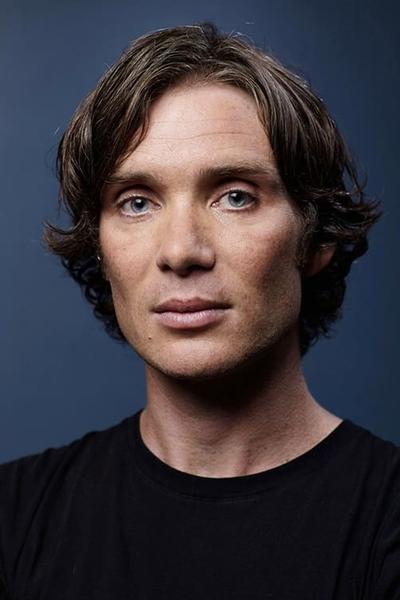Early last week, after attending the junket screening (that's the screening before the press screening and before the premiere - essentially, for people who need to see the movie waaay in advance so they can talk to the people in it), we received a phone call from Universal Pictures here in Ireland informing us that our interview with Cillian Murphy would not be going ahead. The reason? Cillian Murphy is now on strike, as his right as a member of SAG-AFTRA.
This wasn't a complete surprise to us, you understand, as a strike had been brewing for a number of weeks, if not months. Cillian Murphy, being a dues-paying member of the largest organised labour group in the entertainment industry and probably because he's from Cork was not going to stand idly by and let a strike go without him joining a picket somewhere or supporting it with his full chest. Indeed, all of the actors in 'Oppenheimer' walked out of the London premiere at the very moment Fran Drescher - that's the president of SAG-AFTRA - announced the strike action. The terms of the strike prohibit Cillian Murphy - or any other SAG-AFTRA member - from conducting interviews to promote any movie or TV show they're a part of.
So, rather than talk to Cillian Murphy about how he got into character as J. Robert Oppenheimer (who, funnily enough, was a co-founder of the branch of the American Federation of Teachers), we're instead going to talk about the SAG-AFTRA strike, what they're striking for, the current status of the strike, and what's likely going to happen in the next few weeks and months.
Let's start with what they're striking for. The range of issues that SAG-AFTRA are striking for numerous and complex, but it basically boils down to a few main points - better payment of residuals from streaming companies, limiting the use of artificial intelligence for actors on set, and regulation governing self-tape auditions. Let's drill a little bit into residuals for streaming and artificial intelligence.
In the past, actors could reliably earn residuals on the number of times a TV episode they starred in or a movie was shown on TV - much the same way musicians made a percentage from sales of their music or radio play. However, streaming companies today have a completely different system and one that doesn't favour fair compensation for actors, directors, or writers.
Since the likes of Netflix or Disney do not release independently verifiable figures for their movies or series on streaming, it's impossible to accurately calculate residuals from it. Instead, actors and writers are being paid an upfront fee for their work and receiving very little in residuals as a result. Cody Ziglar, a writer on the team of 'She-Hulk: Attorney-At-Law' claimed to have received a grand total of less than four hundred euro - $396, to be precise - for their credited episode. Kimiko Glenn, who played inmate Brook Soso on Netflix's hit series 'Orange Is The New Black' was paid a grand total of $27.30 in residuals for appearing in 44 episodes.
Now, let's move on to artificial intelligence. The Alliance of Motion Picture and Television Producers - that's the grouping that SAG-AFTRA is negotiating with, and represents all the major studios - put forward several proposals on the use of artificial intelligence. One of them governed the use of background performers. The AMPTP's proposal was simply this - bring in an actor for a single day to have their likeness and various poses, gestures and movements scanned for use by artificial intelligence. The actor would then receive a payment for that's day work, and their likeness would be used in perpetuity - meaning that actor could appear in hundreds, if not thousands of movies and TV shows from that one day's work.
Actors on TV shows such as 'Snowpiercer' talked about how they were brought into their sound stages and asked to pose in front of a green screen and mimic different expressions and poses, only to later discover that they were being used to help train an AI to render them - without being told what it was being used for, or even consenting to it in the first place. AI has already turned up on TV shows already. 'Secret Invasion', the latest Marvel series on Disney+, has an AI-generated opening sequence that's caused an uproar with audiences and designers alike.
As of right now, the SAG-AFTRA strike is still ongoing. The AMPTP has not yet agreed to any concessions or demands with the union, and no movement has been reported so far in any of the US trade bibles. Right now, it seems, everyone is just waiting it out. This is a key point worth addressing - neither SAG-AFTRA nor the WGA has called for a boycott of any movie, TV show, or streaming service. Just because the 'Barbenheimer' press onslaught has ended doesn't mean you can't go right out and enjoy either of them.
So, the big question - when will it all end? How will it end? This is where we leave the comfortable realm of facts and take a wild and frivolous journey into speculation. What will likely happen is that one of the members of the AMPTP will crack and make an interim deal with SAG-AFTRA to get their productions rolling again. You have to remember that the AMPTP is just that - an alliance of 350 member producers, including the likes of Netflix, Apple TV+, Prime Video, Disney Studios, Universal Studios, Paramount Pictures, Warner Bros., so on and so on. Every other time of the year, these companies are fighting one another tooth and nail for audience share, viewership, not to mention trying to lure away writers and actors, technicians and directors from their rivals. That's all really that SAG-AFTRA has to do in order to win this thing - wait it out, and see which one of the members of the AMPTP buckles under the pressure and meets their terms. Soon, they'll all start to buckle when they see a competitor getting ahead of them.
Not only that, SAG-AFTRA has already begun issuing exemptions to its members to allow them to work on independent productions from studios that aren't members of the AMPTP. These productions have either agreed to or are willing to meet the union's deals, so SAG-AFTRA members are able to work on them and do press commitments for them as well. In fact, Mark Ruffalo has urged his fellow union members to take up indie productions while the strike is ongoing as it helps to steer profits away from what he described as "the empire of billionaires".
Last but not least, let's talk about what you - yes, you - can do to help the SAG-AFTRA strike. First and foremost, you can donate to the Entertainment Community Fund, which is directly helping actors and writers impacted by the strike action. You can also sign this petition by the WGA that's calling for NBCUniversal to provide safe barriers around its campus to help those striking there. NBCUniversal previously had trees surrounding the campus cut and caught a $250 fine for their trouble. Strikers had previously been shading themselves beneath them. You can also repost any and all posts you see about the strike on your own page or profile, be it Instagram, TikTok, Twitter (or did that dweeb change it to X?), Facebook, whatever.
You can also share this article, if you want? No pressure.




















































































